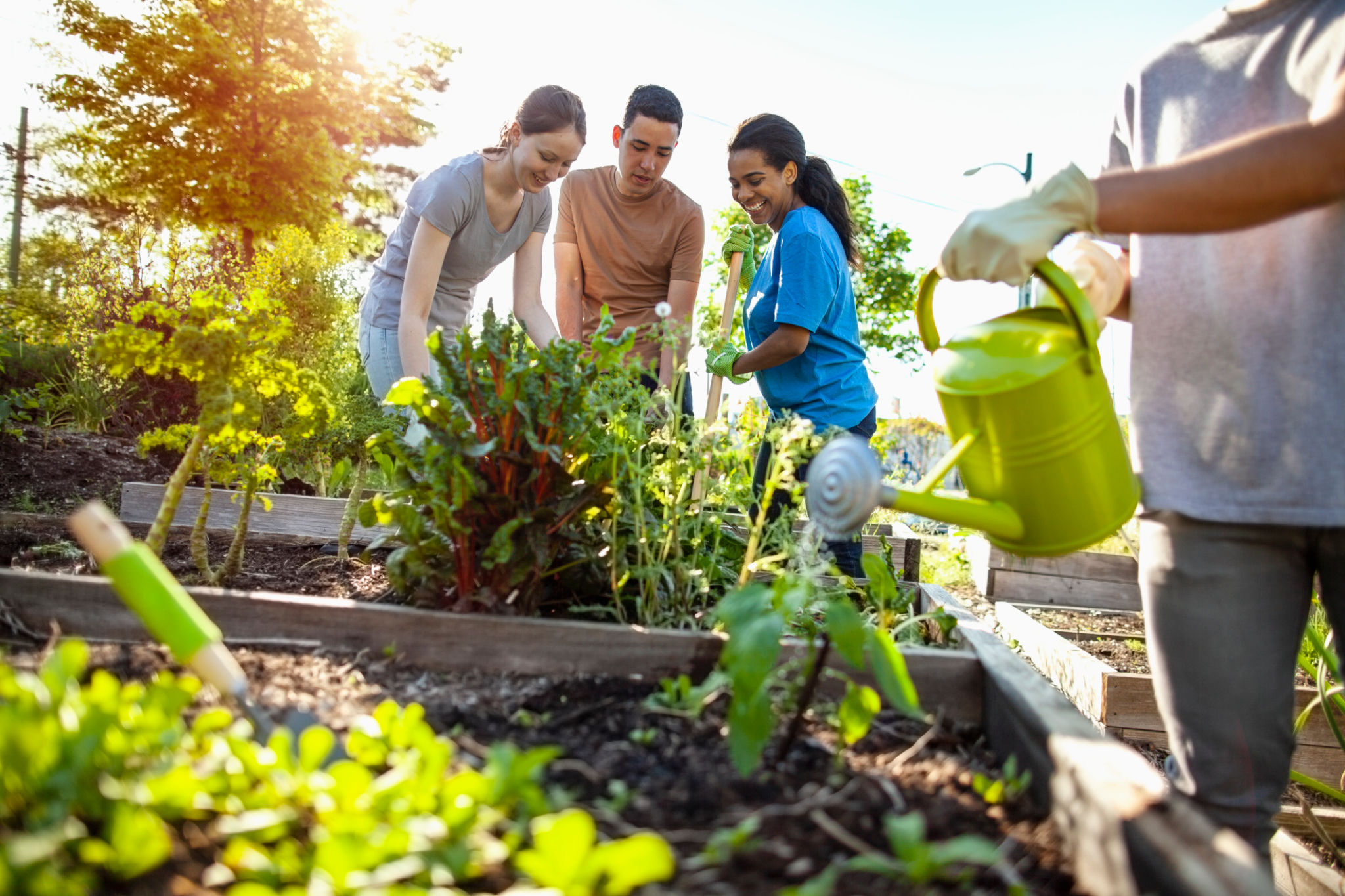Current Trends in Sustainable Living and Gardening: What You Need to Know
Embracing Eco-Friendly Practices
The shift towards sustainable living and gardening has gained momentum as more individuals recognize the importance of reducing their environmental impact. This trend is not just a passing fad but a significant movement towards a healthier planet. By incorporating eco-friendly practices into daily life, people are taking active steps to preserve the environment for future generations.
Sustainable living involves making conscious choices that minimize waste and conserve resources. Many have started to adopt practices like reducing energy consumption, eliminating single-use plastics, and supporting local businesses that prioritize sustainability. These small changes, when adopted collectively, contribute significantly to environmental conservation.

Urban Gardening: A Green Oasis
As urban areas continue to expand, the concept of urban gardening has emerged as a popular trend. This involves transforming small city spaces, such as balconies and rooftops, into lush green areas. Urban gardening not only enhances the aesthetic appeal of these spaces but also contributes to air purification and provides fresh produce.
One key aspect of urban gardening is vertical gardening, which maximizes space by growing plants upwards on walls or trellises. This method is particularly beneficial for those with limited outdoor space. Additionally, community gardens have become hubs for urban dwellers to collaborate on sustainable projects and share knowledge about eco-friendly practices.

Permaculture: Designing for Sustainability
Permaculture, a design philosophy centered around working with nature rather than against it, is gaining traction in sustainable gardening. This approach involves creating ecosystems that are self-sustaining and resilient, mimicking natural processes to enhance biodiversity and soil health.
Key principles of permaculture include observing natural patterns, using renewable resources, and integrating animals into garden systems to naturally manage pests and fertilize the soil. By implementing these practices, gardeners can create harmonious environments that support both plant and animal life.
Water Conservation Techniques
Water conservation is a critical component of sustainable gardening. Many gardeners are adopting techniques such as rainwater harvesting and drip irrigation systems to minimize water usage. Collecting rainwater in barrels for later use in gardens reduces reliance on municipal water supplies.
Drip irrigation systems deliver water directly to plant roots, reducing evaporation and ensuring efficient use of water resources. These systems are particularly effective in arid regions where water scarcity is a concern. Implementing such techniques not only conserves water but also helps maintain healthy plant growth.

Organic Gardening for Healthier Produce
Organic gardening has become synonymous with sustainable living due to its focus on natural methods of cultivation. This practice avoids synthetic fertilizers and pesticides, instead opting for organic compost and natural pest control solutions. As a result, organic gardens produce healthier fruits and vegetables free from harmful chemicals.
Gardening enthusiasts are increasingly turning to companion planting, where certain plants are grown together to naturally repel pests or enhance growth. This method promotes biodiversity and reduces the need for chemical interventions, making it a cornerstone of organic gardening practices.
Innovative Technologies in Sustainable Gardening
Advancements in technology are playing a significant role in sustainable gardening. Smart irrigation systems, powered by sensors and weather data, optimize water usage based on real-time conditions. Additionally, hydroponics and aquaponics offer soil-less growing solutions that use significantly less water than traditional gardening methods.
These technologies not only improve efficiency but also open new possibilities for growing food in challenging environments. As these innovations continue to evolve, they promise to make sustainable gardening more accessible and productive than ever before.

The Role of Education and Community Engagement
Education and community engagement are crucial in promoting sustainable living and gardening practices. Workshops, online courses, and local events provide valuable knowledge and resources for individuals interested in adopting these practices. Community gardens and cooperative initiatives foster collaboration and shared learning experiences.
By raising awareness and providing practical solutions, communities can inspire more people to participate in sustainable living efforts. Engaged communities are better equipped to tackle environmental challenges collectively and create lasting change.
A Greener Future Awaits
The current trends in sustainable living and gardening reflect a growing commitment to environmental stewardship. By embracing these practices, individuals can contribute to a healthier planet while enjoying the benefits of cleaner air, fresher produce, and vibrant green spaces. As more people join this movement, the potential for positive impact continues to expand.
Whether through urban gardening, permaculture, or technological innovations, the opportunities for sustainable living are abundant. As we look towards the future, these trends promise to shape a greener world for generations to come.

